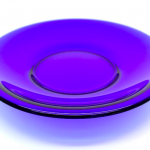When Serotonin’s Good and When It’s Bad by Joan Kent, PhD
Serotonin is a complex brain chemical that has several functions. Below are just a few of these.
What Do We Need to Make Serotonin?
We need protein for the amino acid tryptophan that it contains. And we need carbohydrates to trigger insulin, which helps transport tryptophan to the brain.
Serotonin production is pretty linear. More insulin brings more tryptophan to the brain. Then the brain uses the tryptophan to make serotonin. More tryptophan means more serotonin.
How Is Serotonin Good? 3 Examples
- Serotonin is the precursor of melatonin, the “sleep hormone.” Melatonin is a powerful anti-inflammatory that helps with recovery from athletics and more.
- Serotonin helps us control appetite by making us feel we’ve had enough food, both generally and specifically around carbs. If you eat a high-carb lunch, for example, you’ll probably want fewer carbs at dinner.
- Serotonin helps to prevent or eliminate cravings, especially for sugar.
How Is Serotonin Bad? 3 Examples
- High serotonin can raise blood pressure (BP) by causing vasoconstriction. Everyone says high BP is caused by salt, but carbs that promote high insulin can increase serotonin production and worsen vasoconstriction. That increases blood pressure more.
- Serotonin can make us want to quit exercise sooner because it brings on fatigue. This serotonin/fatigue connection holds true for both endurance and high-intensity training.
- Too much serotonin can make us feel lethargic, lazy, or sleepy.
Best strategies for optimal serotonin:
- Eat protein with each meal to provide tryptophan for serotonin production.
- Avoid “big insulin” triggers. Stay away from sugar and other junky carbs, like white flour. Don’t combine “big insulin” carbs with saturated fats (like butter on potatoes; butter on white bread).
- Manage the insulin/serotonin impact of your meals by eating protein, healthful fats, and vegetables, too. Avoid carbs alone.
- Eat healthful starches to prevent sugar cravings. Examples are lentils, quinoa, squash, sweet potatoes, brown rice, and turnips.
Serotonin can be key in managing moods, workouts, appetite, food preferences, blood pressure, sleep, and cravings. For help with any of these, visit www.LastResortNutrition.com and grab your free Empowered Eating Consult. Find out how easy it is to make small changes that translate to health and food freedom.
Brought to you by Dr. Joan Kent, best-selling author of Stronger Than Sugar: 7 Simple Steps to Defeat Sugar Addiction, Lift Your Mood, and Transform Your Health.



